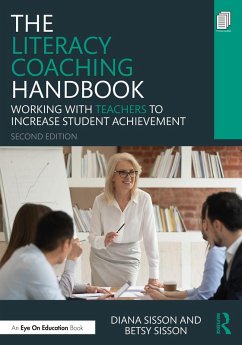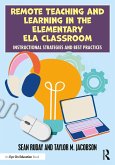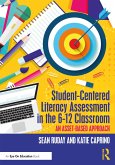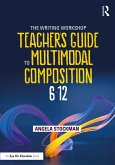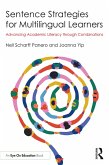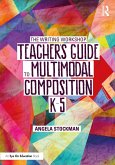Diana Sisson, Betsy Sisson
The Literacy Coaching Handbook (eBook, ePUB)
Working With Teachers to Increase Student Achievement
30,95 €
30,95 €
inkl. MwSt.
Sofort per Download lieferbar

15 °P sammeln
30,95 €
Als Download kaufen

30,95 €
inkl. MwSt.
Sofort per Download lieferbar

15 °P sammeln
Jetzt verschenken
Alle Infos zum eBook verschenken
30,95 €
inkl. MwSt.
Sofort per Download lieferbar
Alle Infos zum eBook verschenken

15 °P sammeln
Diana Sisson, Betsy Sisson
The Literacy Coaching Handbook (eBook, ePUB)
Working With Teachers to Increase Student Achievement
- Format: ePub
- Merkliste
- Auf die Merkliste
- Bewerten Bewerten
- Teilen
- Produkt teilen
- Produkterinnerung
- Produkterinnerung

Bitte loggen Sie sich zunächst in Ihr Kundenkonto ein oder registrieren Sie sich bei
bücher.de, um das eBook-Abo tolino select nutzen zu können.
Hier können Sie sich einloggen
Hier können Sie sich einloggen
Sie sind bereits eingeloggt. Klicken Sie auf 2. tolino select Abo, um fortzufahren.

Bitte loggen Sie sich zunächst in Ihr Kundenkonto ein oder registrieren Sie sich bei bücher.de, um das eBook-Abo tolino select nutzen zu können.
Learn how to become a more effective literacy coach to ensure lasting changes in teaching and learning at your school. In this second edition, literacy experts Diana and Betsy Sisson offer clear, research-based strategies that encourage professional development and growth.
- Geräte: eReader
- mit Kopierschutz
- eBook Hilfe
Andere Kunden interessierten sich auch für
![Remote Teaching and Learning in the Elementary ELA Classroom (eBook, ePUB) Remote Teaching and Learning in the Elementary ELA Classroom (eBook, ePUB)]() Sean RudayRemote Teaching and Learning in the Elementary ELA Classroom (eBook, ePUB)30,95 €
Sean RudayRemote Teaching and Learning in the Elementary ELA Classroom (eBook, ePUB)30,95 €![Student-Centered Literacy Assessment in the 6-12 Classroom (eBook, ePUB) Student-Centered Literacy Assessment in the 6-12 Classroom (eBook, ePUB)]() Sean RudayStudent-Centered Literacy Assessment in the 6-12 Classroom (eBook, ePUB)26,95 €
Sean RudayStudent-Centered Literacy Assessment in the 6-12 Classroom (eBook, ePUB)26,95 €![Teach This Poem, Volume I (eBook, ePUB) Teach This Poem, Volume I (eBook, ePUB)]() Madeleine Fuchs HolzerTeach This Poem, Volume I (eBook, ePUB)30,95 €
Madeleine Fuchs HolzerTeach This Poem, Volume I (eBook, ePUB)30,95 €![The Writing Workshop Teacher's Guide to Multimodal Composition (6-12) (eBook, ePUB) The Writing Workshop Teacher's Guide to Multimodal Composition (6-12) (eBook, ePUB)]() Angela StockmanThe Writing Workshop Teacher's Guide to Multimodal Composition (6-12) (eBook, ePUB)30,95 €
Angela StockmanThe Writing Workshop Teacher's Guide to Multimodal Composition (6-12) (eBook, ePUB)30,95 €![Sentence Strategies for Multilingual Learners (eBook, ePUB) Sentence Strategies for Multilingual Learners (eBook, ePUB)]() Nell Scharff PaneroSentence Strategies for Multilingual Learners (eBook, ePUB)30,95 €
Nell Scharff PaneroSentence Strategies for Multilingual Learners (eBook, ePUB)30,95 €![Teaching Multicultural Children's Literature in a Diverse Society (eBook, ePUB) Teaching Multicultural Children's Literature in a Diverse Society (eBook, ePUB)]() Teaching Multicultural Children's Literature in a Diverse Society (eBook, ePUB)39,95 €
Teaching Multicultural Children's Literature in a Diverse Society (eBook, ePUB)39,95 €![The Writing Workshop Teacher's Guide to Multimodal Composition (K-5) (eBook, ePUB) The Writing Workshop Teacher's Guide to Multimodal Composition (K-5) (eBook, ePUB)]() Angela StockmanThe Writing Workshop Teacher's Guide to Multimodal Composition (K-5) (eBook, ePUB)30,95 €
Angela StockmanThe Writing Workshop Teacher's Guide to Multimodal Composition (K-5) (eBook, ePUB)30,95 €-
-
-
Learn how to become a more effective literacy coach to ensure lasting changes in teaching and learning at your school. In this second edition, literacy experts Diana and Betsy Sisson offer clear, research-based strategies that encourage professional development and growth.
Dieser Download kann aus rechtlichen Gründen nur mit Rechnungsadresse in A, B, BG, CY, CZ, D, DK, EW, E, FIN, F, GR, HR, H, IRL, I, LT, L, LR, M, NL, PL, P, R, S, SLO, SK ausgeliefert werden.
Produktdetails
- Produktdetails
- Verlag: Taylor & Francis eBooks
- Seitenzahl: 204
- Erscheinungstermin: 8. Dezember 2023
- Englisch
- ISBN-13: 9781003802648
- Artikelnr.: 69220189
- Verlag: Taylor & Francis eBooks
- Seitenzahl: 204
- Erscheinungstermin: 8. Dezember 2023
- Englisch
- ISBN-13: 9781003802648
- Artikelnr.: 69220189
- Herstellerkennzeichnung Die Herstellerinformationen sind derzeit nicht verfügbar.
Diana Sisson and Betsy Sisson are international literacy consultants focusing on professional development and school improvement. They also serve as adjunct professors in the fields of teacher preparation, curriculum and instruction, educational research in literacy, and literacy instruction
Preface
Introduction
PART I How Important Is Coaching for Teaching and Learning?
1 The Evolution of Coaching as a Professional Development Model
Coaching Emerges as a Model of Professional Development
How Coaching Supports Effective Professional Learning
2 Models of Coaching
Peer Coaching
Cognitive Coaching
Instructional Coaching
Content Coaching
PART II What Roles Does a Literacy Coach Play?
3 Change Agent
How Is a Literacy Coach a Change Agent?
Why Is the Administrator Critical in Change Efforts?
What Teachers Are the Focus for Change?
How Does Change Happen?
4 Relationship Builder
How Important Is It to Build Relationships With Administrators?
Why Are Relationships With Classroom Teachers So Crucial?
How Do Literacy Coaches Build Relationships With Classroom Teachers?
In What Ways Can Relationships Be Leveraged to Counter Resistant Teachers?
5 Data Analyst
Why Must Data Analysis Begin With the Administrator?
Why Is Looking at Data With Teachers So Critical?
What Types of Data Should Be Examined?
Demographic Data
Student Learning Data
Behavioral Data
How Can Literacy Coaches Help Teachers Analyze Data?
How Does the Use of Data Drive Coaching?
6 Curriculum Expert
How Does Working With the Administrator on Curriculum Benefit the Whole
School?
What Exactly Is Curriculum and Why Must Literacy Coaches Be Curriculum
Experts?
How Can the Role of Curriculum Expert Transform Teaching and Learning?
7 Resource Manager
Why Does Collaborating With the Administrator Assure a Comprehensive
Allocation of Resources?
How Do Resource Managers Build a School Collection?
What Kinds of Resources Are Important?
8 Instructional Specialist
Why Is It Critical to Create an Instructional Leadership Team With the
Administrator?
How Important Is the Role of Instructional Specialist?
What Does an Instructional Specialist Do?
How Does an Instructional Specialist Employ Strategies Prescriptively?
9 Professional Developer
Why Does Teaming Up With the Administrator Transform Professional Learning?
How Significant Is Professional Development?
In What Ways Do Adults Learn and How Does This Influence Professional
Development?
How Is a Focus for Professional Development Identified?
What Forms Can Professional Learning Take?
Faculty Workshops
Team Meetings
Classroom Visitations
Teacher Study Groups
Observation and Feedback Loop
Modeling
Co-Planning
Co-Teaching
Lesson Study
Looking at Student Work
Examining Achievement Data
Coaching Cycles
How Can Multimodal Coaching Strengthen Professional Learning Experiences?
Virtual Workshops
Online Professional Book Clubs
Digital Literacy Resources
Internet Collaboration Tools
Classroom Videos
Webcam Technology
How Can Coaching Be Equitable for All Teachers?
Coaching Rotations for All Faculty Members
Teacher-Requested Consultancy
Administrator-Requested Consultancy
How Can Literacy Coaches Ensure High-Quality Professional Development?
By What Means Can Coaches Provide Support in Schools Experiencing Faculty
Shortages?
What About Working With Students?
PART III How Does a Coach Ensure Lasting Change?
10 Building Essential Skills for Successful Literacy Coaching
Just How Important Are Reading Credentials to a Literacy Coach?
In What Ways Can Literacy Coaches Continue to Build Their Own Skill Sets?
How Can Change Be Sustained?
Why Is Self-Reflection Essential for Sustaining Change?
Final Thoughts
References
Appendix A: Coaching Moves Rating Scale
Appendix B: Professional Developer Resources
Appendix C: Professional Book Club - Questions for Study and Reflection
Introduction
PART I How Important Is Coaching for Teaching and Learning?
1 The Evolution of Coaching as a Professional Development Model
Coaching Emerges as a Model of Professional Development
How Coaching Supports Effective Professional Learning
2 Models of Coaching
Peer Coaching
Cognitive Coaching
Instructional Coaching
Content Coaching
PART II What Roles Does a Literacy Coach Play?
3 Change Agent
How Is a Literacy Coach a Change Agent?
Why Is the Administrator Critical in Change Efforts?
What Teachers Are the Focus for Change?
How Does Change Happen?
4 Relationship Builder
How Important Is It to Build Relationships With Administrators?
Why Are Relationships With Classroom Teachers So Crucial?
How Do Literacy Coaches Build Relationships With Classroom Teachers?
In What Ways Can Relationships Be Leveraged to Counter Resistant Teachers?
5 Data Analyst
Why Must Data Analysis Begin With the Administrator?
Why Is Looking at Data With Teachers So Critical?
What Types of Data Should Be Examined?
Demographic Data
Student Learning Data
Behavioral Data
How Can Literacy Coaches Help Teachers Analyze Data?
How Does the Use of Data Drive Coaching?
6 Curriculum Expert
How Does Working With the Administrator on Curriculum Benefit the Whole
School?
What Exactly Is Curriculum and Why Must Literacy Coaches Be Curriculum
Experts?
How Can the Role of Curriculum Expert Transform Teaching and Learning?
7 Resource Manager
Why Does Collaborating With the Administrator Assure a Comprehensive
Allocation of Resources?
How Do Resource Managers Build a School Collection?
What Kinds of Resources Are Important?
8 Instructional Specialist
Why Is It Critical to Create an Instructional Leadership Team With the
Administrator?
How Important Is the Role of Instructional Specialist?
What Does an Instructional Specialist Do?
How Does an Instructional Specialist Employ Strategies Prescriptively?
9 Professional Developer
Why Does Teaming Up With the Administrator Transform Professional Learning?
How Significant Is Professional Development?
In What Ways Do Adults Learn and How Does This Influence Professional
Development?
How Is a Focus for Professional Development Identified?
What Forms Can Professional Learning Take?
Faculty Workshops
Team Meetings
Classroom Visitations
Teacher Study Groups
Observation and Feedback Loop
Modeling
Co-Planning
Co-Teaching
Lesson Study
Looking at Student Work
Examining Achievement Data
Coaching Cycles
How Can Multimodal Coaching Strengthen Professional Learning Experiences?
Virtual Workshops
Online Professional Book Clubs
Digital Literacy Resources
Internet Collaboration Tools
Classroom Videos
Webcam Technology
How Can Coaching Be Equitable for All Teachers?
Coaching Rotations for All Faculty Members
Teacher-Requested Consultancy
Administrator-Requested Consultancy
How Can Literacy Coaches Ensure High-Quality Professional Development?
By What Means Can Coaches Provide Support in Schools Experiencing Faculty
Shortages?
What About Working With Students?
PART III How Does a Coach Ensure Lasting Change?
10 Building Essential Skills for Successful Literacy Coaching
Just How Important Are Reading Credentials to a Literacy Coach?
In What Ways Can Literacy Coaches Continue to Build Their Own Skill Sets?
How Can Change Be Sustained?
Why Is Self-Reflection Essential for Sustaining Change?
Final Thoughts
References
Appendix A: Coaching Moves Rating Scale
Appendix B: Professional Developer Resources
Appendix C: Professional Book Club - Questions for Study and Reflection
Preface
Introduction
PART I How Important Is Coaching for Teaching and Learning?
1 The Evolution of Coaching as a Professional Development Model
Coaching Emerges as a Model of Professional Development
How Coaching Supports Effective Professional Learning
2 Models of Coaching
Peer Coaching
Cognitive Coaching
Instructional Coaching
Content Coaching
PART II What Roles Does a Literacy Coach Play?
3 Change Agent
How Is a Literacy Coach a Change Agent?
Why Is the Administrator Critical in Change Efforts?
What Teachers Are the Focus for Change?
How Does Change Happen?
4 Relationship Builder
How Important Is It to Build Relationships With Administrators?
Why Are Relationships With Classroom Teachers So Crucial?
How Do Literacy Coaches Build Relationships With Classroom Teachers?
In What Ways Can Relationships Be Leveraged to Counter Resistant Teachers?
5 Data Analyst
Why Must Data Analysis Begin With the Administrator?
Why Is Looking at Data With Teachers So Critical?
What Types of Data Should Be Examined?
Demographic Data
Student Learning Data
Behavioral Data
How Can Literacy Coaches Help Teachers Analyze Data?
How Does the Use of Data Drive Coaching?
6 Curriculum Expert
How Does Working With the Administrator on Curriculum Benefit the Whole
School?
What Exactly Is Curriculum and Why Must Literacy Coaches Be Curriculum
Experts?
How Can the Role of Curriculum Expert Transform Teaching and Learning?
7 Resource Manager
Why Does Collaborating With the Administrator Assure a Comprehensive
Allocation of Resources?
How Do Resource Managers Build a School Collection?
What Kinds of Resources Are Important?
8 Instructional Specialist
Why Is It Critical to Create an Instructional Leadership Team With the
Administrator?
How Important Is the Role of Instructional Specialist?
What Does an Instructional Specialist Do?
How Does an Instructional Specialist Employ Strategies Prescriptively?
9 Professional Developer
Why Does Teaming Up With the Administrator Transform Professional Learning?
How Significant Is Professional Development?
In What Ways Do Adults Learn and How Does This Influence Professional
Development?
How Is a Focus for Professional Development Identified?
What Forms Can Professional Learning Take?
Faculty Workshops
Team Meetings
Classroom Visitations
Teacher Study Groups
Observation and Feedback Loop
Modeling
Co-Planning
Co-Teaching
Lesson Study
Looking at Student Work
Examining Achievement Data
Coaching Cycles
How Can Multimodal Coaching Strengthen Professional Learning Experiences?
Virtual Workshops
Online Professional Book Clubs
Digital Literacy Resources
Internet Collaboration Tools
Classroom Videos
Webcam Technology
How Can Coaching Be Equitable for All Teachers?
Coaching Rotations for All Faculty Members
Teacher-Requested Consultancy
Administrator-Requested Consultancy
How Can Literacy Coaches Ensure High-Quality Professional Development?
By What Means Can Coaches Provide Support in Schools Experiencing Faculty
Shortages?
What About Working With Students?
PART III How Does a Coach Ensure Lasting Change?
10 Building Essential Skills for Successful Literacy Coaching
Just How Important Are Reading Credentials to a Literacy Coach?
In What Ways Can Literacy Coaches Continue to Build Their Own Skill Sets?
How Can Change Be Sustained?
Why Is Self-Reflection Essential for Sustaining Change?
Final Thoughts
References
Appendix A: Coaching Moves Rating Scale
Appendix B: Professional Developer Resources
Appendix C: Professional Book Club - Questions for Study and Reflection
Introduction
PART I How Important Is Coaching for Teaching and Learning?
1 The Evolution of Coaching as a Professional Development Model
Coaching Emerges as a Model of Professional Development
How Coaching Supports Effective Professional Learning
2 Models of Coaching
Peer Coaching
Cognitive Coaching
Instructional Coaching
Content Coaching
PART II What Roles Does a Literacy Coach Play?
3 Change Agent
How Is a Literacy Coach a Change Agent?
Why Is the Administrator Critical in Change Efforts?
What Teachers Are the Focus for Change?
How Does Change Happen?
4 Relationship Builder
How Important Is It to Build Relationships With Administrators?
Why Are Relationships With Classroom Teachers So Crucial?
How Do Literacy Coaches Build Relationships With Classroom Teachers?
In What Ways Can Relationships Be Leveraged to Counter Resistant Teachers?
5 Data Analyst
Why Must Data Analysis Begin With the Administrator?
Why Is Looking at Data With Teachers So Critical?
What Types of Data Should Be Examined?
Demographic Data
Student Learning Data
Behavioral Data
How Can Literacy Coaches Help Teachers Analyze Data?
How Does the Use of Data Drive Coaching?
6 Curriculum Expert
How Does Working With the Administrator on Curriculum Benefit the Whole
School?
What Exactly Is Curriculum and Why Must Literacy Coaches Be Curriculum
Experts?
How Can the Role of Curriculum Expert Transform Teaching and Learning?
7 Resource Manager
Why Does Collaborating With the Administrator Assure a Comprehensive
Allocation of Resources?
How Do Resource Managers Build a School Collection?
What Kinds of Resources Are Important?
8 Instructional Specialist
Why Is It Critical to Create an Instructional Leadership Team With the
Administrator?
How Important Is the Role of Instructional Specialist?
What Does an Instructional Specialist Do?
How Does an Instructional Specialist Employ Strategies Prescriptively?
9 Professional Developer
Why Does Teaming Up With the Administrator Transform Professional Learning?
How Significant Is Professional Development?
In What Ways Do Adults Learn and How Does This Influence Professional
Development?
How Is a Focus for Professional Development Identified?
What Forms Can Professional Learning Take?
Faculty Workshops
Team Meetings
Classroom Visitations
Teacher Study Groups
Observation and Feedback Loop
Modeling
Co-Planning
Co-Teaching
Lesson Study
Looking at Student Work
Examining Achievement Data
Coaching Cycles
How Can Multimodal Coaching Strengthen Professional Learning Experiences?
Virtual Workshops
Online Professional Book Clubs
Digital Literacy Resources
Internet Collaboration Tools
Classroom Videos
Webcam Technology
How Can Coaching Be Equitable for All Teachers?
Coaching Rotations for All Faculty Members
Teacher-Requested Consultancy
Administrator-Requested Consultancy
How Can Literacy Coaches Ensure High-Quality Professional Development?
By What Means Can Coaches Provide Support in Schools Experiencing Faculty
Shortages?
What About Working With Students?
PART III How Does a Coach Ensure Lasting Change?
10 Building Essential Skills for Successful Literacy Coaching
Just How Important Are Reading Credentials to a Literacy Coach?
In What Ways Can Literacy Coaches Continue to Build Their Own Skill Sets?
How Can Change Be Sustained?
Why Is Self-Reflection Essential for Sustaining Change?
Final Thoughts
References
Appendix A: Coaching Moves Rating Scale
Appendix B: Professional Developer Resources
Appendix C: Professional Book Club - Questions for Study and Reflection
